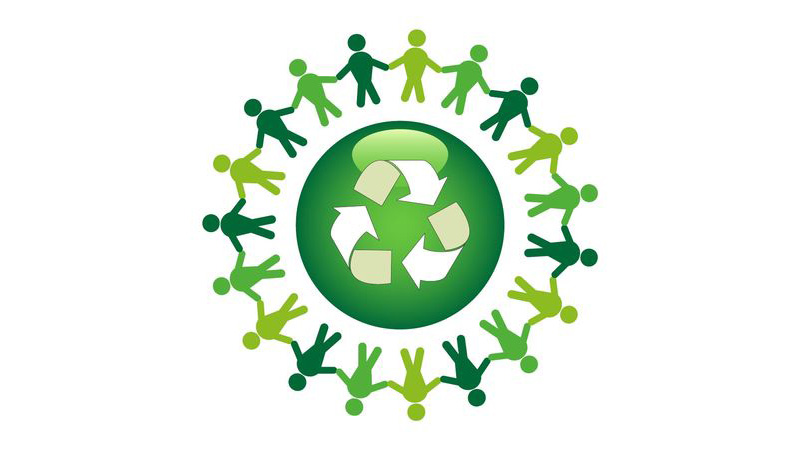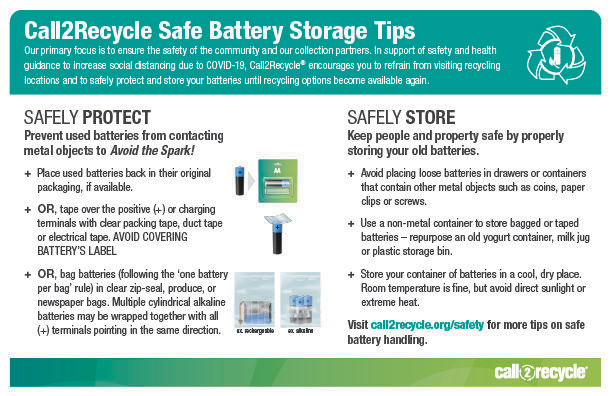
This Earth Day, we are facing a truly challenging situation. During this time, Call2Recycle’s top priority remains on the safety, health and general well-being of our staff, service providers, collection partners, stakeholders and the general public. We are also asking the public on Earth Day to keep one another safe as people spend more time at home more than ever.
We are asking the public to help us prevent accidents within the waste industry.Recently, the Solid Waste Association of North America (SWANA) recorded a significant increase in the number of fatal incidents involving solid waste collection vehicles and employees. Much of this coincides with the COVID-19 pandemic, some unrelated to worker health, or increases in volume and operational changes at facilities. It is essential, above all else, for all of us to help comply with applicable safety rules. While batteries may be the least of anyone’s worries right now, we want collection sites who are managing batteries to know we are a unified front and are here to help inform consumers that responsible storage and disposal of end-of-life batteries is crucial, even life-saving.
With many staying at home, we are looking around the house at what can be repaired, cleaned, and replaced. But before anyone breaks out the power tools or starts organizing their garage, we are reminding them that many household devices contain batteries and how important it is for those batteries to stay out of the regular trash.
Batteries are lightweight, powerful and often a seamless part of devices. They’re in smartphones, laptops, fitness trackers, toothbrushes, toys, greeting cards, watches, power tools and more. And most importantly, even if these batteries appear dead, they can still contain a residual charge and spark if they come into contact with other metal. There are hidden dangers tied to improper handling and disposal of batteries.
Many people are unsure of what to do with old batteries and are also unaware of the dangers of not properly disposing them. According to a survey conducted by The Harris Poll on behalf of Call2Recycle, roughly 3 in 10 Americans don’t believe single-use (30 percent) or rechargeable batteries (27 percent) are recyclable and another 3 in 10 are not sure at all (27 and 29 percent, respectively).
We are asking consumers to keep solid waste and recycling workers safe by safely protecting and storing used batteries to Avoid the Spark until appropriate drop-off locations are reopened. Right now, the health & safety of our communities and our collection partners are our primary concern.
 As we continue navigating these difficult times together, we’re also challenged with how to conduct ‘normal business’ when things seem anything but ‘normal.’ Remote technology solutions allow our team to maintain a high level of service and we remain available and ready to assist with any or your program needs. We’ve developed helpful resources, including temporary site closure signage and safety tips and information cards, which can be downloaded and shared.
As we continue navigating these difficult times together, we’re also challenged with how to conduct ‘normal business’ when things seem anything but ‘normal.’ Remote technology solutions allow our team to maintain a high level of service and we remain available and ready to assist with any or your program needs. We’ve developed helpful resources, including temporary site closure signage and safety tips and information cards, which can be downloaded and shared.
One incident is one too many, and while it may not be from an improperly disposed used battery, we are adamant about doing our part in protecting and supporting the workers who are at the frontlines trying to service residents during this extraordinary time. We celebrate you and thank you for your commitment on Earth Day.
ShareAPR